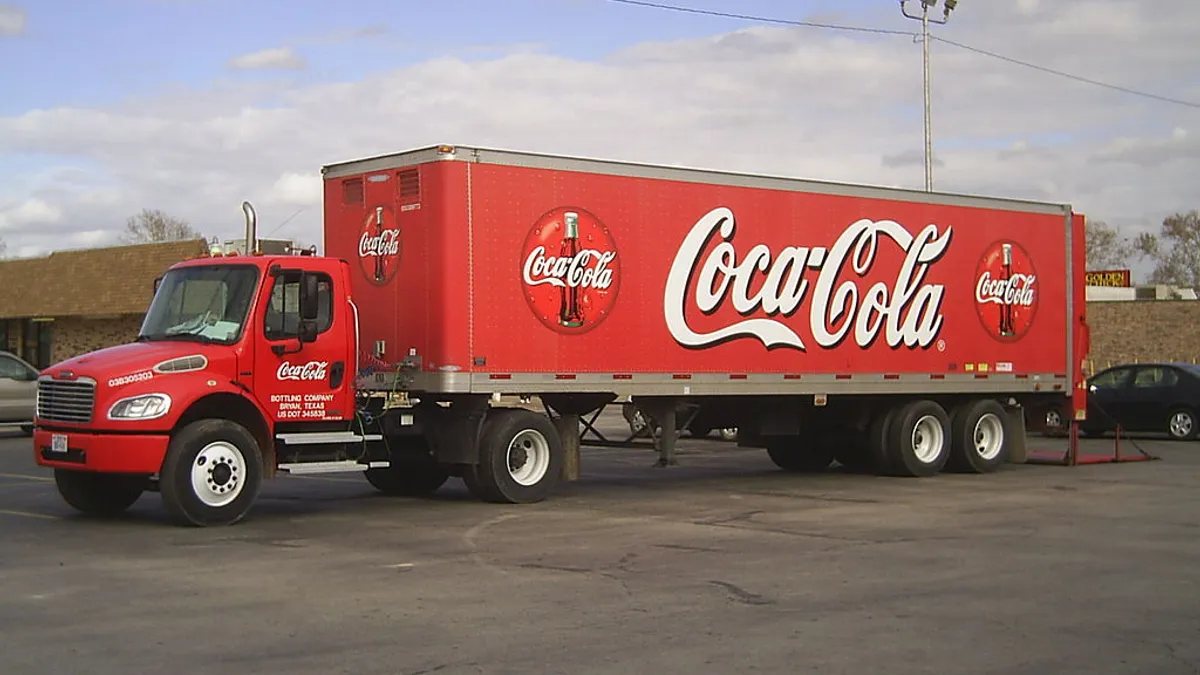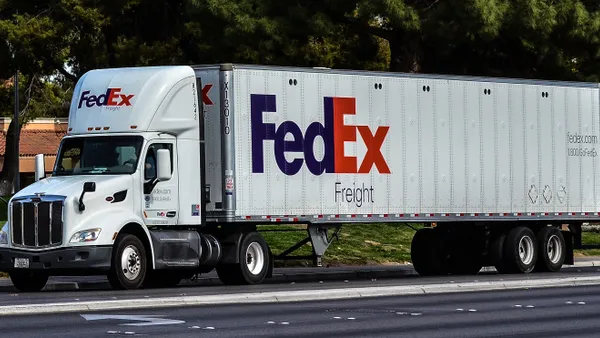Reducing empty miles, the miles driven by truckers without a load, is a well-known win-win for shippers, carriers and the fight against climate change. But actually getting it done isn't simple.
All the players involved in a single load must get on board with a coordinated plan and execute it — productively dealing with any issues along the way. It involves patience and flexibility, which are not necessarily in abundance in today's speed-hungry supply chains, transportation managers explained at CSCMP.
Land O'Lakes Senior Director of Logistics Dustin Braun and Coca-Cola Group Director for Planning and Logistics in North America Rob Haddock have been part of a group of shippers working out how to actually get it done as part of FourKites' Sustainability Center of Excellence, the executives shared Monday at CSCMP's virtual Edge conference.
FourKites launched the center in April to bring together academics and shippers to share strategies, technologies and data to benefit operations while improving sustainability. It counts representatives from the Massachusetts Institute of Technology and the Consumer Brands Association among others as members, along with Haddock and Braun.
When it comes to technology, what shippers need to collaborate and reduce empty miles is visibility into freight movement in real time and the near-term future, Braun said. But that visibility needs to include more than what's happening inside of Land O'Lakes' operation.
"To me, it's the visibility solutions ... that allow us to go more outside-in, and look for creative solutions that you can't get when you just look at your own four walls," said Braun, calling Coca-Cola an "emerging partner" in the effort.
Technologies like FourKites' Lane Connect product, or coordinating through a digital broker like Uber Freight, can provide this visibility in many cases.
"Knowing exactly where trucks are, how fast they're moving, how fast they're sitting, what are the load densities on those trucks," Haddock said. "It all leads to tapping into that idle capacity that is sitting there today. And it's not only sustainability that will benefit." Cost and driver satisfaction could benefit too, he said.
But even with the right view of the right lanes in real time, matching head and backhauls among disparate shippers is still easier said than done.
Braun said early essentials for success are a willing partner and operational flexibility.
"If you want to do this for the greater good, if you want to do it to save on cost ... your operation also has to be flexible to meet the requirements of the other partner," he said. "And I do think that if you give a little bit on a lane, maybe you'll get some back next time on a partner lane."
In order to make this work, shippers need a deep understanding of the lanes they are working in and the carrier relationships of both partners, Haddock said.
"Who is the carrier that would be the integrator across those lanes in both directions and does it work for them?" Haddock advised shippers to consider.
The partnership between Land O'Lakes and Coca-Cola is informal at present. "I don't think we signed anything," Haddock joked. But it's the start of a growing understanding among CPG players that supply chain is a "team sport," in the words of FourKites CEO Matt Elenjickal.
Internally, Haddock and Braun agreed that though there may be a financial benefit to partnering to eliminate empty miles, focusing on sustainability first makes things simpler. Shippers can center the pitches to their organizations around cost reduction, Braun said.
"If you flip it around from where we've been historically and say it's about the drivers, it's about being more sustainable and the cost will eventually work themselves out, you can go much faster," Braun said. After getting internal buy-in, as Haddock and Braun have, the next trick is to scale.















